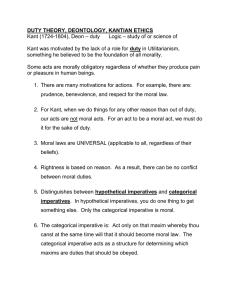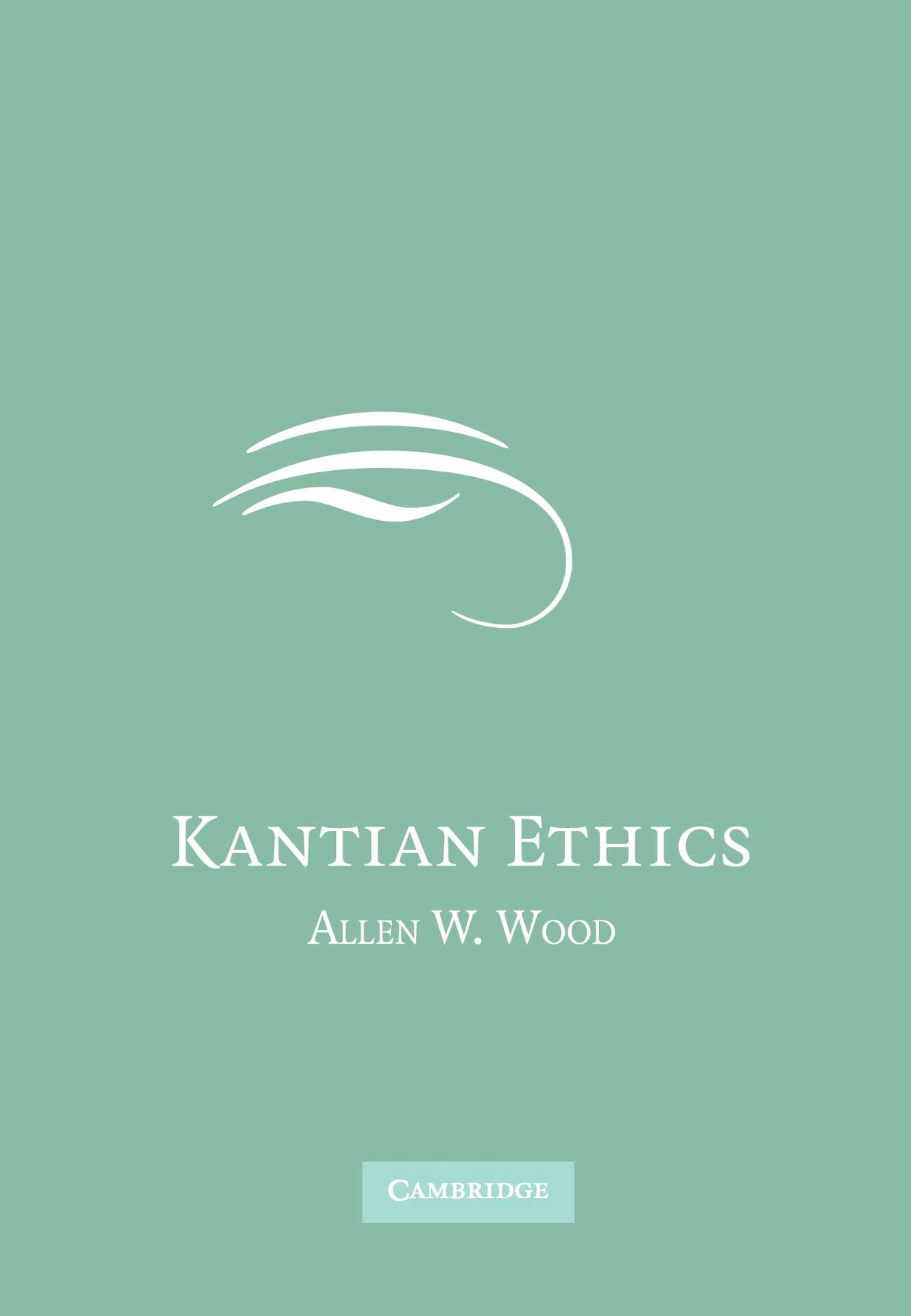
Altman points out that "we must be careful not to make say what we wish he would have said (p. 8)." Altman wants to preserve a central place for Kantian notions of dignity, rational agency and categorical moral principle within applied ethics, but does not want to claim that Kant's a priori account of morality can do all of the work that we need ethical theories to do. Altman writes that a major purpose of the book is to defend Kant "as far as he can be defended and no further (p. 140)." Nor does it aim to show that Kant's theory can adequately handle all the important questions in applied ethics. The book is not an "attempt to establish Kantian ethics and political theory incontrovertibly from the ground up (p.


The book defends Kantian answers to a number of central questions in applied ethics but it also raises objections to Kant's ethical theory. In this chapter, I will compare and contrast Bowie’s and my perspectives on meaningful work.Kant and Applied Ethics is an ambitious attempt to assess the success of Kant's moral theory in the field of applied ethics. In Bowie’s review of my book, The Working Life: The Promise and Betrayal of Modern Work (2000), he criticizes me for not defining meaningful work and offering suggestions on what organizations can do to provide meaningful work (Bowie 2002). I think that this might be true, but achieving it requires managers and businesses to take an extraordinary leap of faith to practice and sustain this goal over time.

For example, in his paper ‘Empowering people as an end for business’ (1998b), he argues that ‘the primary purpose of business is to provide meaningful work for employees and if managers focus on this goal, business will produce quality goods and services for consumers and profits as beneficial by products’ (Bowie 1998b, p.106). Bowie is optimistic about the ability of corporations to provide meaningful work. Kantian ethics also provide Bowie with a foundation for explaining his idea of meaningful work.

Bowie’s writing in this area demonstrates how Kant, perhaps more than any other philosopher, offers the most stringent and lucid account of what a moral employer/employee relationship should look like. He writes about it in his book Business Ethics: A Kantian Perspective (1999) and in an article ‘A Kantian theory of meaningful work’ (1998a). Bowie has applied Kant’s ethics to several aspects of business ethics, but the one that I find the most compelling is his Kantian theory of meaningful work.


 0 kommentar(er)
0 kommentar(er)
